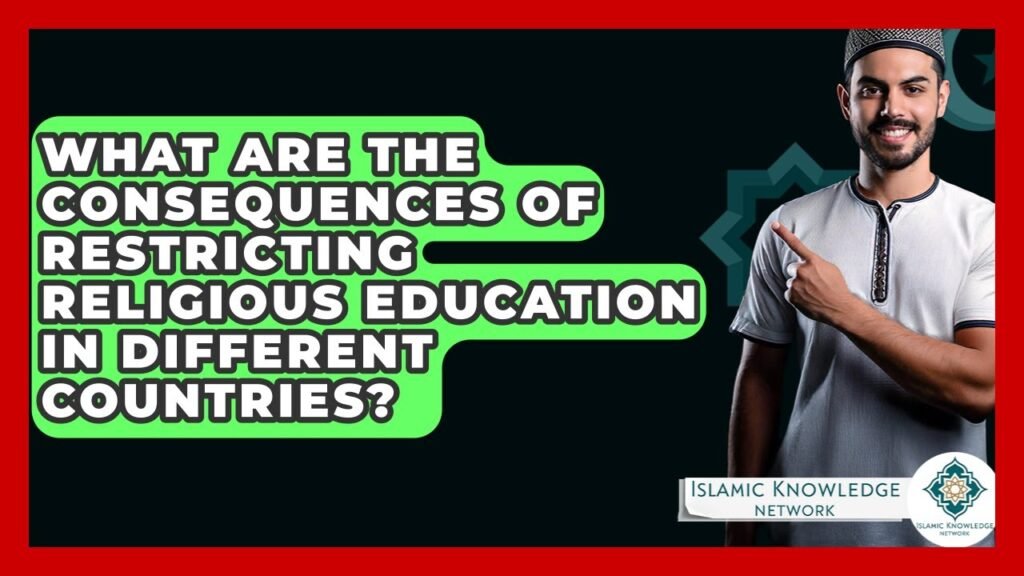You are here to read: What Are the Consequences of Limiting Religious Education Globally? – A Thoughtfully Written Guide Offering Spiritual Wisdom and Travel Advice for Every Pilgrim who is going on holy journey of Hajj or Umrah.
In an increasingly interconnected world, the role of religious education remains a cornerstone of societal development and personal identity. However, various countries are grappling with the implications of restricting religious education. This crucial issue not only affects individual freedoms and cultural heritage but also has far-reaching consequences for social cohesion and community dynamics. Understanding these impacts is essential, particularly in a global context where spirituality and faith play significant roles in many people’s lives.
At Airlink Hajj and Umrah, we recognize the vital importance of religious education, especially for Muslims undertaking their spiritual journeys. Our blog provides comprehensive updates on Hajj and Umrah, ensuring that pilgrims have access to the knowledge they need for their sacred experiences. As we explore the consequences of restricting religious education, we invite readers to consider how such limitations can shape beliefs, values, and a sense of belonging across different societies. Join us in this critical discussion as we delve into the nuances of religious education and its implications for both individual and communal practices worldwide.
What Are the Consequences of Limiting Religious Education Globally?
Limiting religious education globally can have far-reaching consequences on society, culture, and individual development. First and foremost, it can lead to a decline in moral and ethical values, as religious teachings often provide a framework for understanding right and wrong. Without access to these teachings, individuals may struggle to find purpose and direction in their lives, ultimately resulting in increased societal discord and divisions.
Moreover, restricting religious education dampens intercultural dialogue and understanding. In an increasingly globalized world, knowledge about different faiths fosters respect and tolerance among people. When religious education is limited, misconceptions and stereotypes may persist, leading to prejudice and conflict. This is particularly relevant for pilgrimages like Hajj and Umrah, which embody values of unity and peace among diverse cultures. At Airlink Hajj and Umrah, we provide comprehensive updates on these sacred journeys, emphasizing the importance of understanding their religious significance.
Finally, limiting religious education undermines community cohesion. Religious institutions often serve as centers for social support, charity, and community engagement. By not educating individuals about their faith, we risk weakening these vital community ties. Thus, reinvigorating religious education is essential for fostering harmony and understanding in our multicultural world.
FAQ on “What Are the Consequences of Limiting Religious Education Globally?”
FAQs on the Consequences of Limiting Religious Education Globally
1. What are the potential social consequences of limiting religious education?
Limiting religious education can lead to increased social fragmentation, reduced understanding between different faiths, and a rise in intolerance or discrimination against minority religions.
You're at the middle of this awesome post at AirlinkHajjandUmrah.com through: What Are the Consequences of Limiting Religious Education Globally?. Keep reading, it gets better!
2. How might limiting religious education affect individual identity?
Individuals may struggle with forming a cohesive identity without the cultural and ethical frameworks provided by religious teachings, potentially leading to existential confusion and a lack of purpose.
3. What impact could this have on global peace and conflict resolution?
A reduction in religious education could exacerbate conflicts driven by misunderstanding and intolerance, as people may lack the tools to engage in constructive dialogue about their differences.
4. Can limiting religious education influence moral and ethical development?
Yes, it may weaken individuals’ moral compasses, as many ethical frameworks are derived from religious teachings, leading to ambiguity in moral decision-making.
5. How could economies be affected by limiting religious education?
An absence of religious education might hinder the development of social capital and community cohesion, which are essential for economic collaboration, innovation, and productivity in diverse societies.
That wraps up What Are the Consequences of Limiting Religious Education Globally?. Thanks for sticking with us till here! Share this: What Are the Consequences of Limiting Religious Education Globally? with your friends.
Check our homepage at Air Link Hajj & Umrah for more awesome updates.
Some interesting posts are: 1: Umrah Mubarak, 2: When is Umrah closed 2026?, 3: When does Umrah start after Hajj 2026?
Mushu, an experienced Saudi Arabia traveler and writer, shares insightful tips and spiritual reflections to enhance Hajj and Umrah journeys for fellow pilgrims. He has been to Makkah and Madina from 2016 to 2023 many times and his posts will reflect this.







